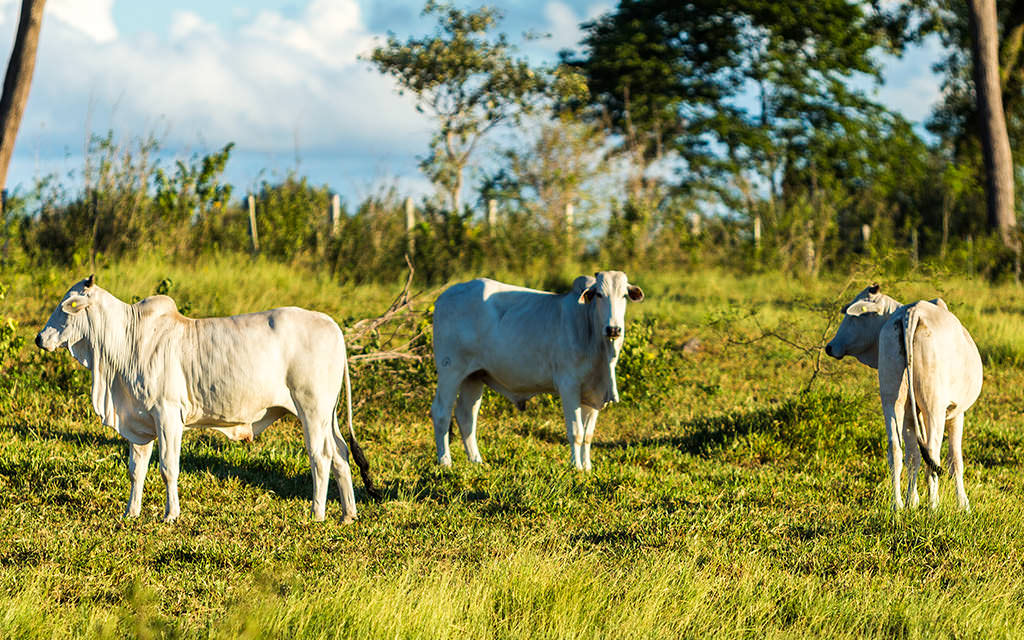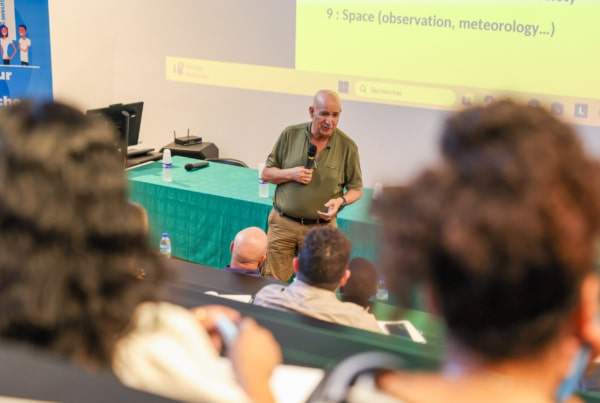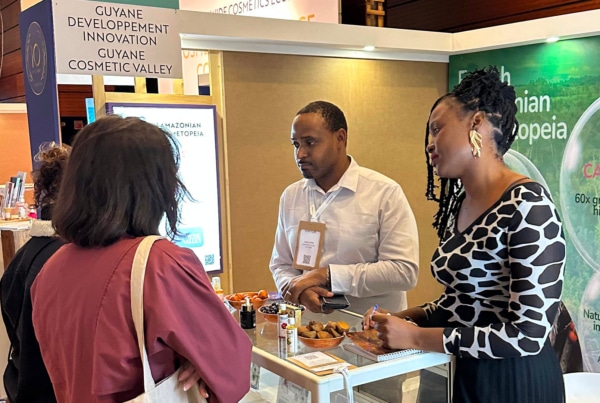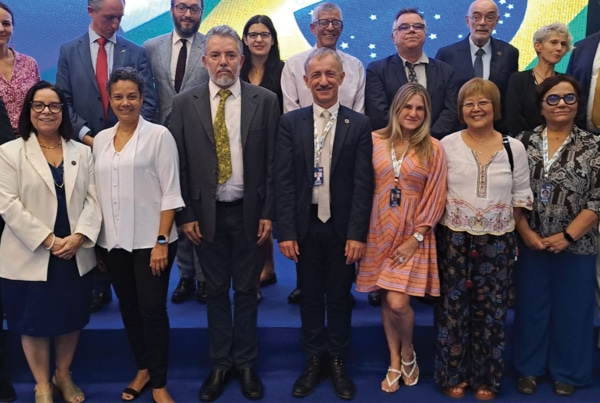
2016 saw the start of a study aimed at assessing the food health risks faced by Guyanese consumers. This hospital-university study entitled "PARALIM" is part of the "Research in French Guiana" Call for Expressions of Interest (AMI), launched by the Collectivité Territoriale de Guyane (formerly Région Guyane) in September 2015.
The "Research in French Guiana" Call for Expressions of Interest (AMI)
L he Collectivité Territoriale de Guyane (CTG), the managing authority for European funds, has published the "Research in French Guiana" Call for Expressions of Interest (AMI) as part of the 2014-2020 ERDF-SSE Regional Operational Programme (OP), which aims to develop scientific and technical knowledge in the areas identified by the Regional Innovation Strategy (SRI-SI). Launched in 2015, this AMI provides €3 million in support for research and development (R&D) projects in French Guiana in a number of priority and emerging areas, including: agriculture, agro-processing, bioresources, tourism, renewable energies and tropical health.
Selected by the CTG, the "PARALIM" university project addresses the issue of food risks linked to the consumption of farmed and wild meats, and as such is benefiting from this European financial support in order to inform the public and public health players about appropriate preventive health measures.
PARALIM: a study on food safety for Guyanese consumers
According to a study by INVS-AFSSA*, there is a wide range of food sources of contamination, from farmed meat to game meat. Consumption of raw or undercooked infected meat is a frequent route of transmission of parasites in humans. Teniasis and toxoplasmosis are the two main diseases, accounting for more than 99% of cases.
An initial recent study carried out on farms in French Guiana revealed a high level of toxoplasma infestation: 53% in goats, 33% in sheep and 7% in cattle.
Not all parasitic diseases are notifiable and a number of them are asymptomatic at the time of infestation. Most estimates are based on the sale of anti-parasitic drugs, making it difficult to identify infected cases.
For other more serious parasitoses, such as trichinellosis contracted through the ingestion of trichinae larvae, a surveillance system has been set up to monitor the epidemiological situation in France more closely. Outside epidemic periods, prevention and awareness-raising messages are sent out to the general population and to people at risk because they handle meat. Studies carried out between 1960 and 1997 showed a seroprevalence of toxoplasmosis of between 15% and 92%, with major differences between regions in sheep.
In Switzerland, a study of sheep showed that toxoplasmosis was the second leading cause of abortion in this species. Another study carried out in Haute-Savoie in 2005 showed a serological prevalence of 21% for lambs, 59% for ewes and 27% for cattle.
In French Guyana, there is no data in the literature on the potential parasitic health risk arising from the consumption of both farmed and hunted meat. In the literature, very little information on the issue is disseminated to the population. However, as in mainland France, the living conditions of wild and farmed animals are conducive to the circulation of parasites that may be responsible for certain zoonoses transmissible to humans, of varying severity, whether or not contamination occurs via an insect vector. The discovery in recent years of severe forms of primary toxoplasma infection in immunocompetent subjects supports the hypothesis of a dietary risk. These forms involve the ingestion of atypical strains of T.gondiiwhich circulates in neotropical wild habitats between local wild felids and their prey, non-carnivorous wild mammals that are highly prized by humans, thus constituting a source of contamination. Other zoonotic infections have been reported in French Guiana, such as neotropical ecchinococcosis.
On the basis of these descriptions, it was felt that it would be useful to assess the possible health risk in relation to other zoonoses by revealing the presence or otherwise of other parasites related to Toxoplasma of the phylum Apicomplexa and certain helminths such as trichinae, Taenia and ecchinococosis using molecular techniques and cloning.
PARALIM: an original and innovative project
French Guiana is potentially very attractive because of its biodiversity, which is unique in Europe, the large number of tropical pathologies that need to be investigated, and the possibility of practising tropical medicine in the field; this is one of the major assets of the proposed team. This will be the first comprehensive study of parasitic zoonoses involved in human pathology in French Guiana. It will make it possible to assess the potential dietary risks for the Guianese population in terms of the meat consumed, both that from Guianese livestock farms and hunting meat, which is very popular in this department. The methodology aims to screen for potentially pathogenic agents and assess the prevalence of parasitic species. Sequencing will provide an accurate picture of the strains circulating in wildlife and enable us to assess the biodiversity of these parasitic agents.
Over three years, the PARALIM project will aim to :
- Establish a local diagnostic capability for parasitic food risks, based essentially on molecular diagnostics.
- Molecular typing and phylogeny of parasitic strains involved in zoonoses and circulating in the various biotopes of French Guiana.
- Extrapolate from phylogeny data the interactions between potential reservoirs, the environment and humans.
- To provide knowledge of parasitic animal pathology.
- To contribute to the development of useful methods for the prevention and control of diseases affecting farm animals, and to improve animal welfare, thereby enhancing the competitiveness of farms and the quality of their products.
- To set up a serotheque, DNA library and collection of parasite strains responsible for zoonoses, to be used for other bioclinical or fundamental research projects.
*Institut de Veille Sanitaire - French Food Safety Agency




